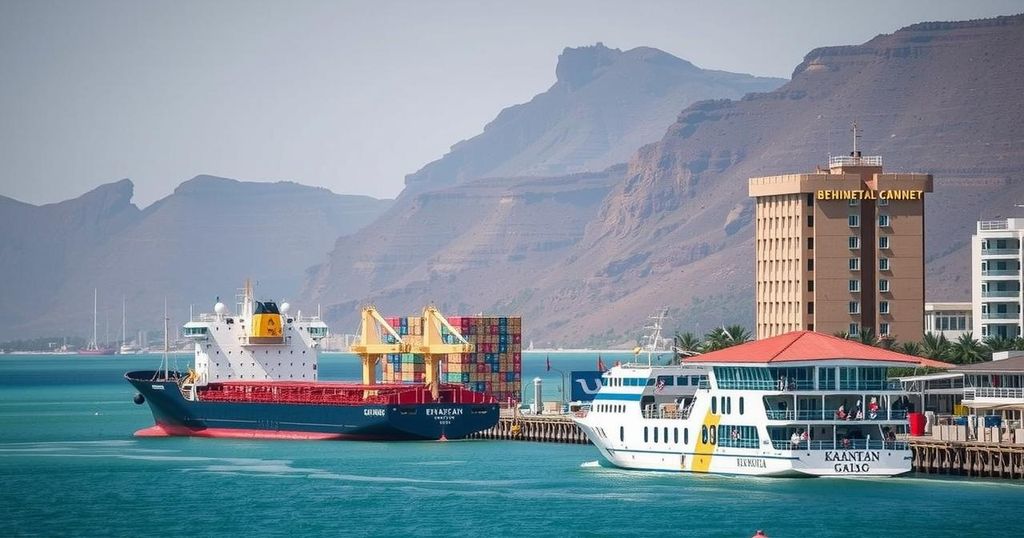China’s investments in Djibouti under the Belt and Road Initiative highlight its strategic importance in East Africa. However, the country’s limited manufacturing capacity and agricultural output, alongside geopolitical tensions in the Red Sea, raise concerns for Chinese businesses operating there.
China’s strategic investments in Djibouti, a key player in East Africa under the Belt and Road Initiative, showcase their expanding influence in the region. Djibouti’s pivotal geographic location has enabled Chinese enterprises to flourish, especially in infrastructure development, such as ports and transportation. However, the country’s limited manufacturing capabilities and harsh desert climate pose significant challenges, particularly in terms of agricultural output, which contributes just 1 percent to its GDP. Consequently, Djibouti remains heavily dependent on imports to sustain its economy.
Djibouti’s natural resources have also been largely untapped despite hosting Lake Assal, known for having the world’s largest salt reserve. Although the lake’s potential has remained dormant for many years, a significant shift occurred in 2015 when the China Communications Construction Company acquired a majority stake in an American-owned salt company, subsequently rebranding it as the Djibouti Salt Investment Company. This acquisition marks a notable effort to harness Djibouti’s resources and promote local economic growth. However, the recent instability in the Red Sea region raises concerns over the safety and sustainability of foreign investments, prompting apprehensions among Chinese businesses regarding the potential impacts of geopolitical tensions on their operations in the area.
Djibouti, strategically located at the intersection of shipping routes between Europe, Asia, and Africa, serves as a critical hub for international trade. The country’s participation in China’s Belt and Road Initiative has attracted substantial Chinese investments, particularly in infrastructure projects that enhance its logistical capabilities. Despite its geographical advantages, Djibouti struggles with a lack of manufacturing and agricultural output, leading to a reliance on imports. Understanding these foundational elements assists in contextualizing the recent concerns about the Red Sea crisis and its implications for Chinese businesses in the region.
In conclusion, while China has made significant strides in establishing its presence in Djibouti through various investments, the prevailing crises in the Red Sea pose substantial risks. The strategic importance of Djibouti may be marred by geopolitical uncertainties, threatening the stability and profitability of existing and future Chinese ventures. As the situation develops, businesses will need to navigate these challenges carefully to safeguard their interests in this vital corridor.
Original Source: amp.scmp.com






